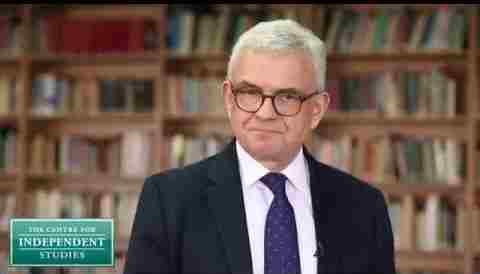Melbourne, July 12: A new kind of fundamentalism confronts us, and can be termed ‘minority fundamentalism’ according to a new research report from the Centre for Independent Studies.
Released yesterday, the report outlines that minority fundamentalism has all the features of religious fundamentalism, such as:
- ideological fanaticism;
- intolerance of dissent; and
- a total certainty about truth and falsehood.
“The weapons preferred by the new fundamentalists are hatred and vituperation, and they deploy them to wage war on ‘intolerance”, report author Peter Kurti says.
He says the new behavioural norm is ‘non-discrimination’ — and groups like the Greens want to apply it with totalitarian thoroughness to everyone without exception.
“This is the tyranny of ‘identity politics’ — the style of politics increasingly backed by law, such as the s18C of the Racial Discrimination Act 1975, characterised by heavy use of stigma and shame, and enthusiastically pursued by the Progressive Left,” Kurti says.
Minority fundamentalists aim to eradicate all forms of discrimination in the name of liberating those deemed to be oppressed.
The net of anti-discrimination is being cast ever more widely, as was seen most famously in the 2011 ‘Andrew Bolt’ case (Eatock v Bolt), he says.
A Research Fellow in the Religion and Civil Society Program at the Centre for Independent Studies, Rev. Kurti identifies the frequent categories of oppression – gender, race, ethnicity and sexual orientation, “whose ramparts must be breached in the name of equality”.
He refers to campaigners such as the:
Safe Schools Coalition who hold that social structures, such as gender, must be dismantled in the name of equality; and
Advocates for same-sex marriage, who insist that reform of Australia’s marriage laws is nothing less than a matter of justice.
“Newly-minted, fashionable rights, such as the right to equality, are intended to address disadvantage and exclusion, but in doing so, they often threaten to trump any other right with which they might conflict.
“Contemporary human rights have morphed from a concern for the rights and responsibilities of individuals living in particular communities – such as the nation state – into a series of global moral norms transcending all state and societal boundaries, based upon which an individual may not only claim protection from the arbitrary exercise of power but seek redress against perceived inequalities of power and opportunity.
Rev Kurti cites comments by Jonathan Sacks, former Chief Rabbi of the Commonwealth, that:
“Liberalism and multiculturalism privatise identity: one by attributing it to the individual; the other to the ethnic or religious community. But there is, intentionally, no overarching structure of meaning holding it together.”
“In the absence of that overarching structure, those who do not belong to excluded minority groups are finding that the shared assumptions underpinning a liberal democracy are under threat – even when they are guaranteed by law,” Rev Kurti says.
Rev Kurti terms this growing situation of our society as a “democratic deficit” – a growing discrepancy between our expectations and our experience of democratic institutions.
“Democratic freedoms like free speech and freedom of religion are being eroded by identity politics whose ‘equality’ purports to buttress against tyranny but, in reality, threatens to foster it.
Rev Kurti believes that the pursuit of democratic egalitarianism leads to a weakening effect that prioritises equality over freedom and, in doing so, locks people into specific categories at the expense of individual liberty.
“Minority fundamentalism poses a threat to the normal political and social functions that we take for granted,” Kurti said.
Nidhi Mehta
Similar Posts by The Author:
- Supriya Shrinate delivers Kangana Ranaut a huge advantage
- The Mahua Moitra saga – Is she a victim for Shashi Tharoor to save?
- Election 2022: Matthew Guy is closing in on Daniel Andrews
- Harry and Meghan claims: Queen responds but the Today team is divided
- Alleged Hindu phobia gets Rinku Sharma killed in India

